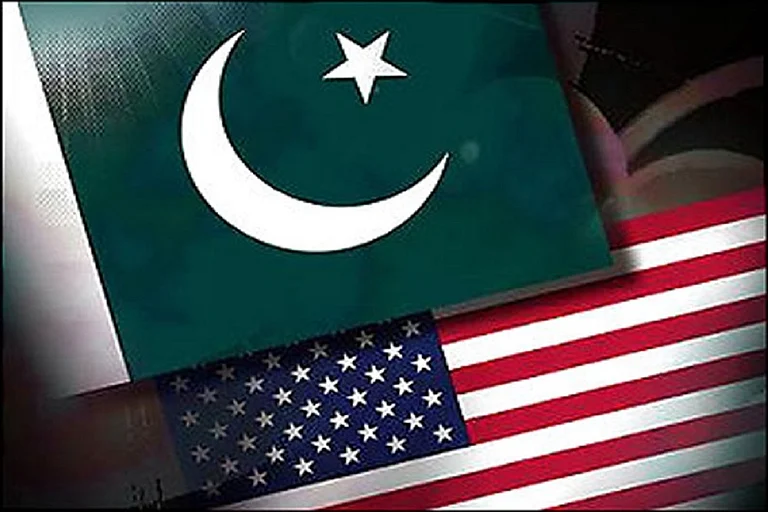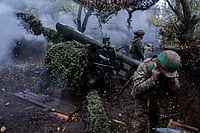Twenty five years later, a serving Pakistani army chief, General Asim Munir, has acknowledged the involvement of his nation's forces in the Kargil war, listing the 1999 conflict with India among the wars fought with the eastern neighbour.
Speaking at the Defence and Martyrs Day event at Rawalpindi, the Chief of Army Staff (COAS) pointed at the role of the Pakistani army in defending the nation with the support of its citizen, touching upon its conflicts with India.
“Indeed Pakistani nation is a courageous and bold nation, which understands best the importance of independence and how to protect it at any price. Whether the Pak-India wars of 1948, 1965, 1971 and Kargil or Siachen conflict, thousands of martyrs gave sacrifices for the security and honour of the country,” Munir said.
The Kargil War, also known as Operation Vijay, started in May 1999 and ended in July with the removal of Pakistani infiltrators from the region. As many as 2,00,000 troops were deployed as part of the military operation, of which 500 were killed, with one pilot taken as a prisoner of war.
Notably, Pakistan has never directly acknowledged the role of its army and has asserted that private "freedom fighters" were involved in the Kargil War.
Munir also said that Pakistan would not allow political differences to turn into hatred. The COAS further maintained that the strong rapport between the army and the public would be a foundation to defeat any enemy trying to create a divide between them.
“The relation between the armed forces and the nation is of heart,” he said, adding that the nation always strengthened the army in all fields including, “rescue works in the events of natural disasters, foreign hostilities or war against terrorism.”
PERVEZ MUSHARRAF'S BOOK
In the 2006 book titled 'In The Line Of Fire' written by Pervez Musharraf, who was the army chief during the Kargil war, clearly acknowledged the Pakistani Army's role.
Musharraf had sent the Northern Light Infantry men in the Kargil theatre of war.
Captain Karnal Sher Khan of 27th Battalion, Sind Regiment and Havaldar Lalak Jain of Northern Light Infantry, were awarded the highest gallantry award by Pakistan -- Nishan-e-Haider -- after the Kargil war concluded.
PAK'S VIOLATION OF 1999 LAHORE PACT
In May this year, Pakistan's former chief minister Nawaz Sharif admitted that a violation of the Lahore pact from Islamabad's end led to the Kargil war in 1999.
"On May 28, 1998, Pakistan carried out five nuclear tests. After that, [then Indian Prime Minister Atal Bihari] Vajpayee Saheb came here and made an agreement with us. But we violated that agreement…it was our fault,” stated Sharif.
Signed on February 21, 1999, the Lahore Declaration served as a historic milestone in Indo-Pak relations as both countries intended to work towards peace and security.
"The Prime Ministers of the Republic of India and the Islamic Republic of Pakistan, sharing a vision of peace and stability between their countries, and of progress and prosperity for their peoples, convinced that durable peace and development of harmonious relations and friendly cooperation will serve the vital interests of the peoples of the two countries," read the text of the Lahore Declaration of 1999.
The agreement was signed years after the 1971 Indo-Pak war and amid the tight nuclear arms race the nations were engaged in. The pact, notably, also dealt with issues ranging from Kashmir to terrorism to the handling of nuclear weapons.
WHAT TRIGGERED THE CONFLICT?
Infiltration of Kashmir by several Pakistani troops disguised as militants and insurgents triggered the 1999 Kargil war. The intrusion, first reported by local shepherds in the region, quickly prompted a quick response from the Indian Army.
As Army patrols sent out in Kargil on May 3, Pakistani troops captured and killed five soldiers. The killings were followed by a visit by General Musharraf and found the complete destruction of the Army's ammunition dumps in Kargil.
Soon, India and Pakistan found each other to be at war. On May 26, the Indian Air Force launched its first air to ground strike, which was followed by Indian Army's Operation Vijay.
The war, which lasted for two months, came to an end on July 26 after violent confrontations between the forces of the two nations. This day, when Indian soldiers recaptured their border posts, is celebrated as 'Kargil Diwas' or 'Vijay Diwas'.
India, on July 26, 2024, marked the 25th anniversary of the Kargil War.






























